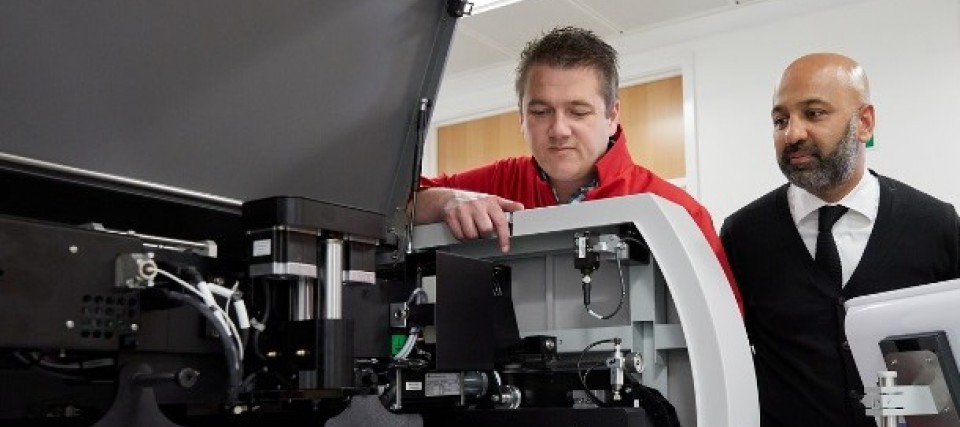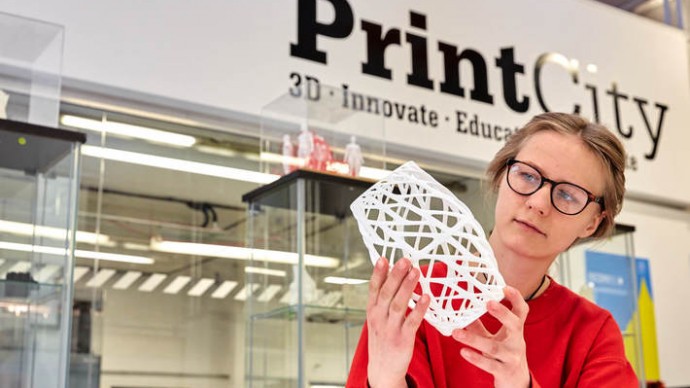
Research group: Additive Manufacturing
Using additive manufacturing technology and developing bespoke feedstocks to product next generation electrochemical storage and sensors.
About
About our research
We develop state-of-the-art additive manufacturing working on 3D and 4D printing.
We have reported the world’s first completely 3D printed additive manufactured sodium ion battery, and work on additive manufactured supercapacitors and sensors for a range of important target analytes.
We also work on the development of next generation screen-printed electrodes, including nanoparticle and nanosheet modified electrodes for important reactions operating with fuel cells and electrolyzers.
And we’ve shown that changes in ink composition — such as the type, size or loading of graphite particles — and in printing and curing conditions can affect the electron transfer reactivity and the performance of the resulting carbon sensors.
Screen-printing electrodes means that only small quantities of the advanced material are required, which allows rapid and efficient scale-up of designs.
We work with influential international groups, including the British Council and Royal Society, and deliver contract research and spin-out projects.
Our researchers work closely with the centre’s Electrochemistry group.

PrintCity
PrintCity is Manchester Met’s 3D additive and digital manufacturing centre. It is home to manufacturing experts, designers, engineers and students, and works with businesses of all sizes.Contact
Contact us
You can contact individual members of the team through their staff profiles.
For general enquiries, please contact our research group lead Prof Craig Banks.
